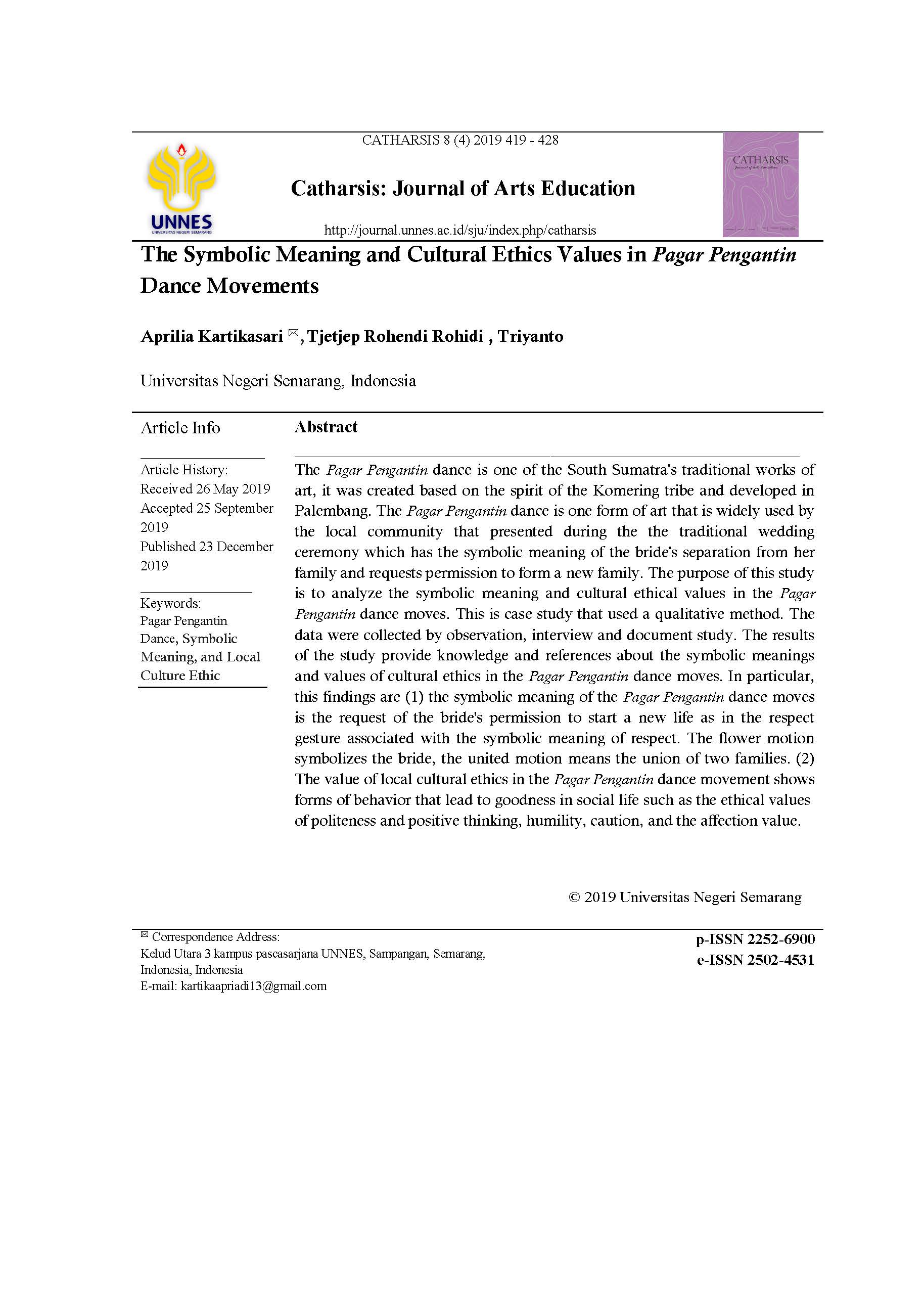The Symbolic Meaning and Cultural Ethics Values in Pagar Pengantin Dance Movements
Abstract
The Pagar Pengantin dance is one of the South Sumatra's traditional works of art, it was created based on the spirit of the Komering tribe and developed in Palembang. The Pagar Pengantin dance is one form of art that is widely used by the local community that presented during the the traditional wedding ceremony which has the symbolic meaning of the bride's separation from her family and requests permission to form a new family. The purpose of this study is to analyze the symbolic meaning and cultural ethical values ​​in the Pagar Pengantin dance moves. This is case study that used a qualitative method. The data were collected by observation, interview and document study. The results of the study provide knowledge and references about the symbolic meanings and values ​​of cultural ethics in the Pagar Pengantin dance moves. In particular, this findings are (1) the symbolic meaning of the Pagar Pengantin dance moves is the request of the bride's permission to start a new life as in the respect gesture associated with the symbolic meaning of respect. The flower motion symbolizes the bride, the united motion means the union of two families. (2) The value of local cultural ethics in the Pagar Pengantin dance movement shows forms of behavior that lead to goodness in social life such as the ethical values ​​of politeness and positive thinking, humility, caution, and the affection value.


